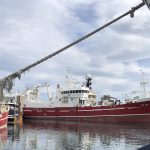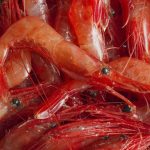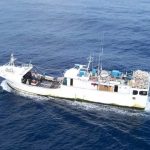According to the reports climate change is expected to add more stress for fish populations, forcing warm-water species further toward the poles, changing marine and freshwater food webs and habitats. It is obvious that fish now become costly and only rich countries are having the demanding fish like salmon and tuna, which have already been over-fished.
According to the nonprofit environmental group Oceana now the smaller fish that these fish eat are under pressure. It is said that fishermen have caught all the big fish and now they are going after their food. Margot Stiles, a lead author of Oceana’s report opined that people are now stealing the ocean’s food supply; these are fish that we basically never used to eat.
The UN Food and Agriculture Organization explained that when fish stocks decline, that poses a potential problem for humans. The organization said in a statement that the question is whether per capita supplies of fish for human consumption will remain steady or peak in the near future and then start to fall.
It is fact that aquaculture has grown rapidly in the last three decades from about 6 percent of fish available for human consumption in 1970 to about 47 percent in 2006. The UN report questioned the notion that aquaculture would automatically grow to meet demand, saying this sends a “surreptitious message” that no public policies are needed. The report mentioned that aquaculture-enabling policies are essential for the steady and sustainable growth of the sector.
Oceana informed with commercially attractive fish like Pacific salmon and blue fin tuna depleted in the wild, fishing fleets turn to prey fish for revenue where in the past they only used these species for subsistence and bait. Climate change could add new problems, both reports said, because prey fish are particularly sensitive to warm temperatures and prey populations have collapsed when heavy fishing proceeded during previous warm periods.








